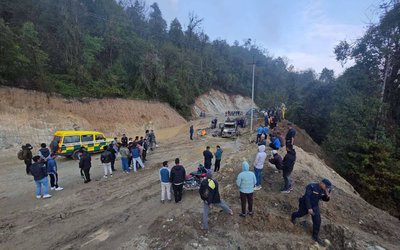Major depression is a common medical problem. But the good news is that in many instances it can be treated with drugs and psychotherapy. In the Western world, depression accounts for the largest burden of disease when measured by disability adjusted life years ( DALYs). DALYs takes into account both absolute years of life lost because of disease ( premature death) as well as productive years lost because of disability.
Hence DALYs is a more precise indication of the burden of disease in a society. The fact that major depression is at the top of the list of the burden diseases in the West means that amazingly, it trumps all other common diseases like alcohol abuse, chronic obstructive pulmonary disease, diabetes mellitus, and even ischemic heart disease, all very common problems afflicting humanity.
Although accurate statistics regarding depression are hard to find for low- income countries like Nepal, many of us may have probably experienced first- hand the ravages of depression in our selves or our near and dear ones. So, indeed this is a common and important topic which needs to be dealt with seriously.
It is estimated that about the fifth of the world’s population ( 20%) will experience at least one episode of major depression in the course of a lifetime. Major depression does not mean just feeling sad for a day or two, but the term denotes a more disabling condition lasting for weeks to months that adversely affects a person’s family, work or school life, sleeping and eating habits and general health. The depressed person may also have a low self-esteem, and characteristically there is a loss of interest or pleasure in normally enjoyable activities. All manner of individuals may be affected by depression, even those who may appear to behumorous and easy going, as evidenced by the death ( from suicide) of the famous actor, Robin Williams, who suffered from major depression.
Besides counseling the patient, there are many effective antidepressant drugs in the market that a knowledgeable doctor can help the patient with. There are also newer and more expensive antidepressants, but there is no evidence to show that these newer drugs are more efficacious than the older ones like the tricyclic anti depressants. Indeed about 75 % of patients will respond to any anti depressant if given in a sufficient dose for about 2 months.
In countries like Nepal where there is no health insurance provision for the common man, whenever drugs have to be taken for a long time, it is best to use an effective but least expensive drug with an acceptable side effect profile; otherwise due to unaffordability, the patient will not be compliant regardless of the severity of the disease, and all will have been for naught.
Typically these anti depressants take about 2 to 3 weeks to show their salutary effect; and after 2 months of the drug, if there is an insufficient response to treatment the doctor may decide to increase the dosage at that time. Once the control of the symptoms is established, then the medicine is taken for about six tonine months to make sure there is no relapse at this stage.
For many people thislength of therapy may be good enough for cure. However there are subset of patients who may suffer from additional episodes of major depression and in those cases, the doctor may consider putting the patient on indefinite maintenance therapy.
In conclusion, major depression is a common problem worldwide. But with effective and inexpensive long -term therapy available, there is no need to despair regarding this problem which has been around since the beginning of time.

Buddha Basnyat MD
Buddha Basnyat, MD, MSc, FACP, FRCP, Director of the Oxford University Clinical Research Unit-Patan Academy of Health Sciences, Kathmandu.
- Altitude Sickness
- Feb 20, 2018
- Post-earthquake Nepal: The Way Forward
- Dec 13, 2015
- The Annapurna Sanctuary
- Nov 29, 2015
- Diarrhea at the Summit
- Nov 08, 2015
- Altitude Sickness ( AMS, HAPE, HACE)
- Oct 15, 2015















